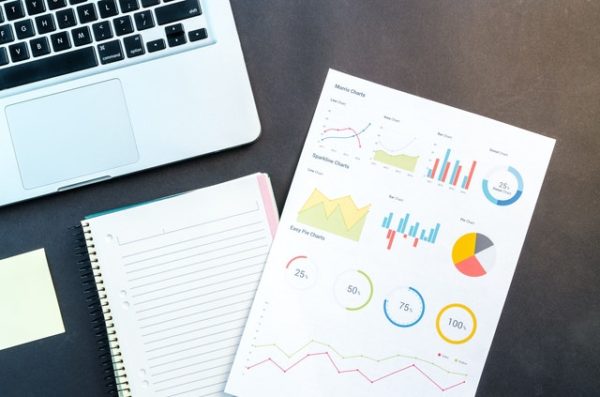 The first question when it comes to owning a business is whether it is B2B or B2C? This is so because that is where the entire marketing and promotion strategies of your business lie. Every entrepreneur is selling something; that may be in terms of services or in terms of goods. While the full form of B2B and B2C is easy to write in, understanding their properties and attributions need a fair understanding of the terms. Having similarities and differences both, this blog post will help you understand the fine line of separation between these two concepts of B2B and B2C.
The first question when it comes to owning a business is whether it is B2B or B2C? This is so because that is where the entire marketing and promotion strategies of your business lie. Every entrepreneur is selling something; that may be in terms of services or in terms of goods. While the full form of B2B and B2C is easy to write in, understanding their properties and attributions need a fair understanding of the terms. Having similarities and differences both, this blog post will help you understand the fine line of separation between these two concepts of B2B and B2C.
The bottom line
B2B refers to ‘business to business’ and this type of business sell their products or services to another business. For example, a software manufacturing company when sells its products to various institutions, their dealing becomes B2B. Or say any organization that is selling or giving in rent an apartment to another carries the tag of B2B business. Any sale where the customer is another business group is a B2B business.
While on the other hand, B2C means ‘business to consumer’. All transactions in which the services or goods are sold to the end consumer for their personal use are referred to as B2C business. All the online shopping portals selling electronic items, clothing, jewelry etc. are examples of B2C businesses. B2C business sells its product directly to the customers where any chance of reselling is zero.

The difference in marketing
While the basic marketing strategy for these two remains the same, some key differences in their behavior make it stand as a separate entity.
- Customer emotion
Let’s take the example of the apartment which is sold by one business group to another. In this B2B dealing, the customer business group will be more interested in looking into the pros and cons of the space. If they want to set up their office in the apartment, they will check the apartment floor, whether the space is enough for their employees, the location, lift facility and so on (includes budget as well). This transaction involves no personal sentiments of the buyers and the profit of their organization is the sole motive behind the purchase.
This is not the case of B2C marketing. Say a person wants to buy an earphone from an online store. He/she will fix a budget, have some specifications, look for it on the internet, compare the prices and then buy it while ensuring the best offers. The entire dealing is more emotional than practical. Emotion runs so deep that just for a colour change of the earphone; customers are ready to pay a higher price.

- The decision to buy or not to
What key factors will change your decision to buy (or not) an earphone from a particular site? The offers, easy return if required, reviews, delivery taxes and similar few other things. If any site fails to satisfy the majority of these, the decision favours the other. So, it’s only one’s personal sentiments and choices that are affecting the buying decision.
But while buying the apartment for office purpose what are the factors that a business tycoon will consider? How will this space help me growing my office and network? Is it on the main road or a bit surrounded by the narrow alleys? All the decision making aspects will be mainly oriented towards their company’s profit and well being and not involve any personal feelings and emotions. This doesn’t mean that an emotional appeal doesn’t work well in B2B purchases but that they put forward their company’s profit first before their own interests.
- The time involved in decision making; to buy or not to buy
B2B business transactions need more time than B2C dealings. As stated above as soon as the buyer’s criteria get satisfied, he/she purchases the earphone and even forwards the link to their friends. But when it comes to purchasing the apartment, the B2B decision will take some time to finalize. It is so because B2B decision involves various other prevailing factors like proper research, consulting with the higher level personals and many more.
- The buying process
It is clear from the above point that B2B decision making takes some time over B2C. This affects the buying process as well thus involving a lengthy buying process in B2B than in B2C.
- Long-lasting relationship vs a quick purchase
A lengthy buying process in case of B2B dealing is surely going to foster a long-lasting bond between the brands; more time, better understanding, smoother leveraging and hence, long term bonds. On the other hand, B2C business stands strong on advertising and promotions where consumers can see their products, compare their requirements and buy them.

Before concluding
- As B2C business targets individuals, showing up an ad at the best time of the day to a specific age group and gender of people will do their sales magic. But for B2B marketing, the ads need to target a specific group of people who are interested in buying an apartment for office or trade purposes.
- B2B marketing should be more clear and explanatory about its services and benefits. An in-depth analysis of their services is mandatory in B2B marketing. Whereas, for B2C marketing, buyers look for ‘short and quick descriptions; multiple pages of product description in B2C campaigns subsequently deviates the customer to another site. Instead, a focus on the main features of the services will reduce the decision-making time of the consumer with an impromptu purchase.
- Ensuring the best customer service is a quintessential part of B2B marketing. As mentioned earlier, B2B deals promote long term bonds; along with promising the best customer care service can nurture and strengthen this relationship.
Well, these were only a few points to figure out the bottom lines of the crucial terms B2B and B2C. Above all, understanding both the emotion and motivation of the consumers is necessary for business deals. At the end of the day, customers are the only decision-makers; whether to buy a glossy blue earphone or an airy apartment on the 11th floor.



